
Verona: The City of Romance and History
Welcome to Verona, a city that beautifully marries history, culture, and romance. Nestled in the Veneto region of Italy, Verona is famous for its rich history and enchanting architecture. As you walk through its ancient streets, you'll feel like you've stepped back in time, surrounded by well-preserved Roman ruins and medieval buildings. Verona is perhaps best known as the setting for Shakespeare's timeless love story, 'Romeo and Juliet.' The iconic Juliet's Balcony attracts visitors from all over the world who come to leave letters and take pictures. But there's much more to Verona than this literary landmark. The city's Roman amphitheater, the Arena di Verona, hosts world-class opera performances and concerts, offering a magical experience under the stars. Beyond its historical significance, Verona boasts a vibrant culinary scene. From traditional Italian trattorias to upscale dining establishments, you can savor some of the finest wines and dishes in the region. Don't forget to explore the bustling Piazza delle Erbe, where you can enjoy a coffee or aperitivo while watching the world go by. Verona is not just a destination; it's an experience that will leave you with lasting memories.
Local tips in Verona
- Visit the Arena di Verona during the summer for an unforgettable opera experience.
- Purchase a Verona Card to gain access to multiple attractions and save on entrance fees.
- Take a walk along the Adige River for stunning views and photo opportunities.
- Explore the lesser-known Giardino Giusti, a beautiful Renaissance garden.
- Try the local Valpolicella wines; they are some of the best in Italy.
Neighbourhoods in Verona
Verona: The City of Romance and History
Welcome to Verona, a city that beautifully marries history, culture, and romance. Nestled in the Veneto region of Italy, Verona is famous for its rich history and enchanting architecture. As you walk through its ancient streets, you'll feel like you've stepped back in time, surrounded by well-preserved Roman ruins and medieval buildings. Verona is perhaps best known as the setting for Shakespeare's timeless love story, 'Romeo and Juliet.' The iconic Juliet's Balcony attracts visitors from all over the world who come to leave letters and take pictures. But there's much more to Verona than this literary landmark. The city's Roman amphitheater, the Arena di Verona, hosts world-class opera performances and concerts, offering a magical experience under the stars. Beyond its historical significance, Verona boasts a vibrant culinary scene. From traditional Italian trattorias to upscale dining establishments, you can savor some of the finest wines and dishes in the region. Don't forget to explore the bustling Piazza delle Erbe, where you can enjoy a coffee or aperitivo while watching the world go by. Verona is not just a destination; it's an experience that will leave you with lasting memories.
When is the best time to go to Verona?
Iconic landmarks you can’t miss
Verona Arena
Discover the grandeur of Verona Arena, a historic Roman amphitheater renowned for its stunning architecture and world-class performances in the heart of Italy.

Juliet’s House
Discover the enchanting Juliet's House in Verona, a must-visit museum celebrating love, history, and Shakespeare's timeless tale.
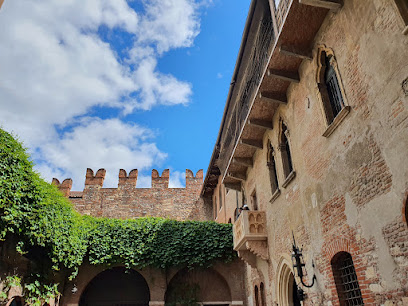
Castelvecchio Museum
Explore the grandeur of Castelvecchio Museum, a historic fortress in Verona showcasing exceptional art and rich cultural heritage.
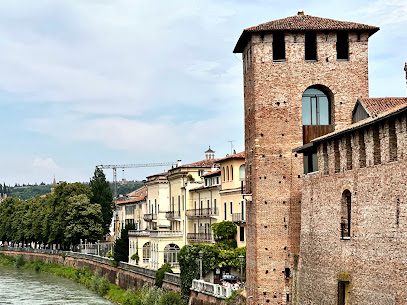
Piazza delle Erbe
Explore the vibrant atmosphere of Piazza delle Erbe, Verona's historic square filled with culture, markets, and stunning architecture.
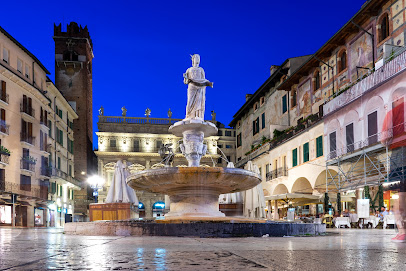
Ponte Scaligero
Discover the enchanting Ponte Scaligero in Verona, a historical bridge offering stunning views of the Adige River and a glimpse into the city's rich past.
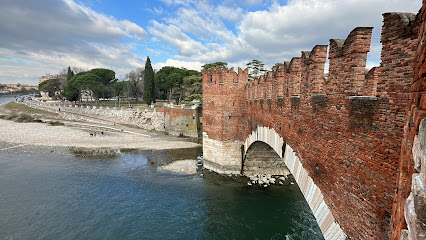
Ponte Pietra
Explore the historic Ponte Pietra, an ancient Roman bridge in Verona offering breathtaking views and a glimpse into the city’s rich heritage.
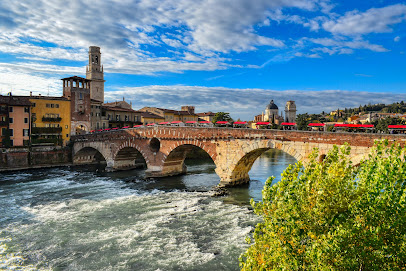
Cattedrale di Santa Maria Matricolare
Discover the architectural beauty and serene atmosphere of the Cattedrale di Santa Maria Matricolare, a must-see landmark in Verona's rich cultural landscape.
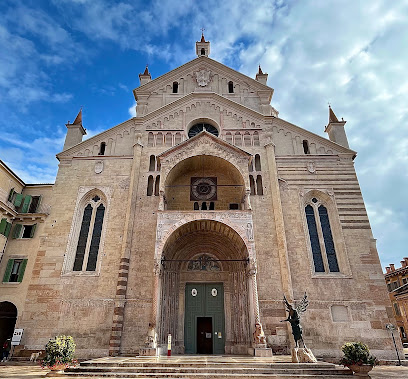
Castel San Pietro
Explore Castel San Pietro in Verona, where history meets breathtaking views and idyllic scenery, perfect for every traveler.
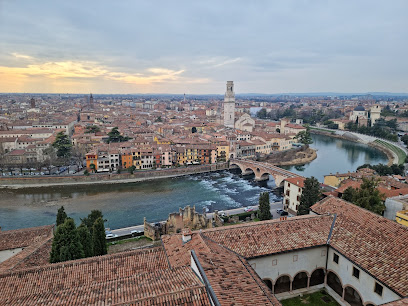
Basilica di San Zeno Maggiore
Explore the Basilica di San Zeno Maggiore in Verona: a breathtaking masterpiece of Romanesque architecture and a serene oasis of history and culture.
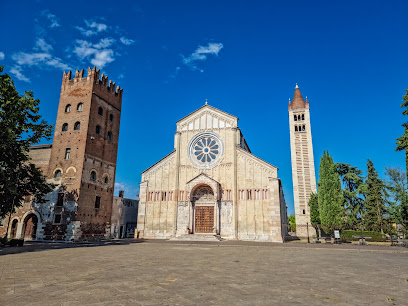
Porta Borsari
Explore Porta Borsari, a stunning Roman gate in Verona, rich in history and architectural splendor, perfect for history enthusiasts and tourists alike.
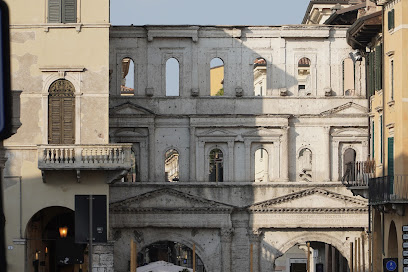
Porta Nuova
Discover the historic charm of Porta Nuova, Verona's iconic gateway, where ancient history meets modern vibrancy.
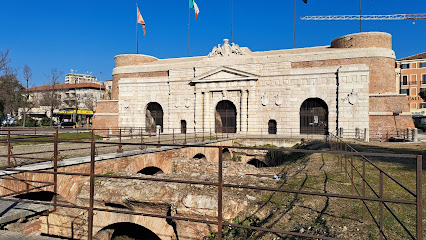
Piazza dei Signori
Discover the charm of Piazza dei Signori, Verona's historical square filled with stunning architecture, rich culture, and lively atmosphere.
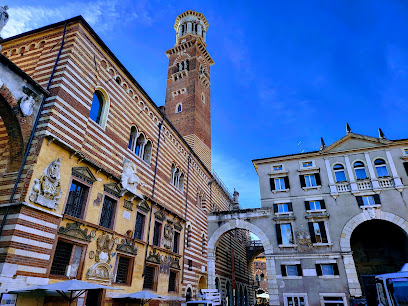
Basilica di Santa Anastasia
Explore the stunning Gothic architecture of Basilica di Santa Anastasia in Verona, a must-visit for art and history enthusiasts alike.

Giusti Garden
Explore the enchanting Giusti Garden in Verona, a stunning botanical oasis combining art, nature, and history in a serene setting.
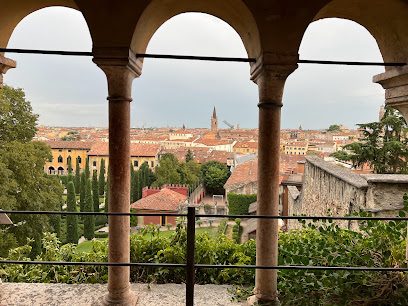
Museo Archeologico al Teatro Romano
Explore the rich history of the Roman Empire at Museo Archeologico al Teatro Romano in Verona, where ancient artifacts meet stunning architecture and breathtaking views.
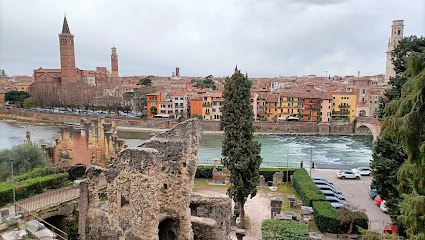
Unmissable attractions to see
Arena di Verona
Discover the grandeur of the Arena di Verona, a Roman amphitheater steeped in history and a premier venue for opera and cultural events.
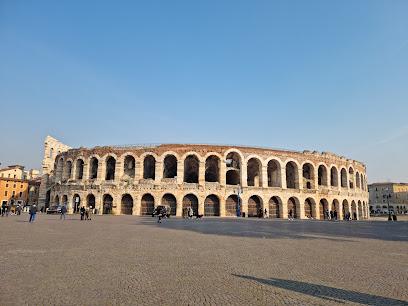
Gardaland Resort
Experience the thrill and excitement of Gardaland Resort, Italy's top amusement park, with rides, shows, and endless fun for all ages near Lake Garda.
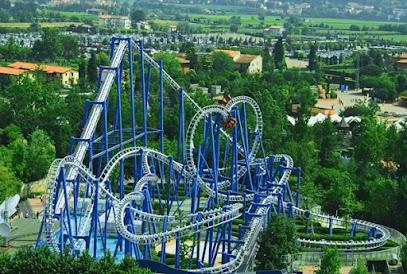
Casa di Giulietta
Explore the iconic Casa di Giulietta in Verona, a symbol of love and romance, and immerse yourself in the enchanting story of Shakespeare's Juliet.
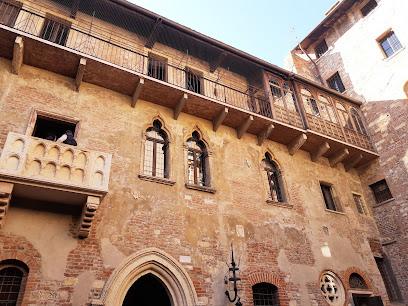
Castello Scaligero di Sirmione
Explore the enchanting Castello Scaligero di Sirmione, a medieval fortress offering breathtaking views and rich history on the shores of Lake Garda.
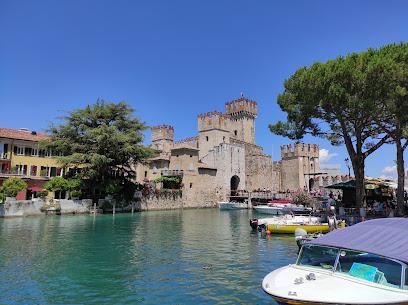
Parco Giardino Sigurtà
Discover nature's splendor at Parco Giardino Sigurtà, a stunning ecological park in Italy with vibrant gardens and serene landscapes.

Vittoriale degli Italiani
Explore the breathtaking Vittoriale degli Italiani, a historical landmark and museum celebrating the life of Gabriele D'Annunzio amidst stunning gardens and art.
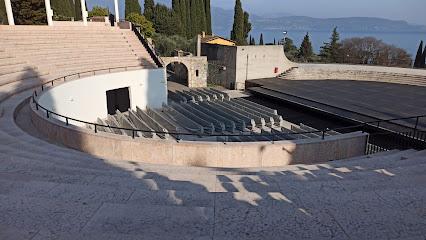
Aquardens
Discover the serene beauty of Aquardens, a luxurious thermal spa in Pescantina, where relaxation meets nature in the heart of Italy.
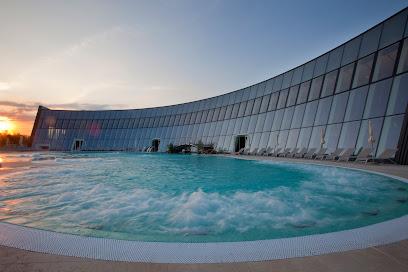
Castelvecchio Museum
Discover the magnificent Castelvecchio Museum, a blend of history, art, and architecture in Verona, Italy.
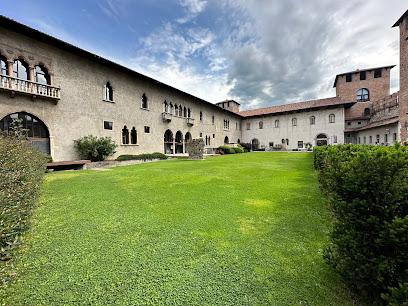
Lake Garda
Discover the captivating beauty and vibrant culture of Lake Garda, Italy's largest lake, a perfect getaway for adventure and relaxation.
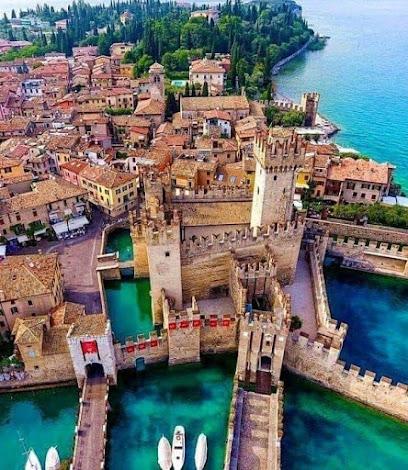
Ducale Palace
Explore the Ducale Palace, a Renaissance masterpiece in Mantova, Italy, filled with art, history, and stunning gardens.
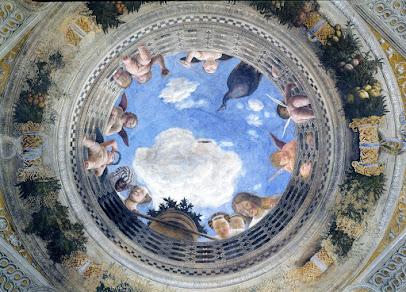
Ponte Scaligero
Explore the majestic Ponte Scaligero, a historical bridge in Verona offering stunning views and a glimpse into the city's rich past.
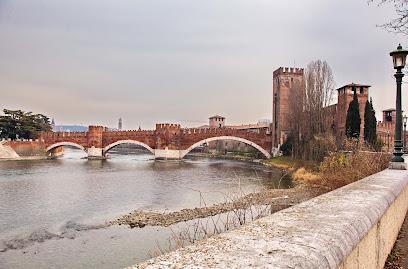
Ponte Pietra
Discover the enchanting Ponte Pietra in Verona, a historic Roman bridge offering stunning views of the Adige River and a glimpse into Italy's rich past.
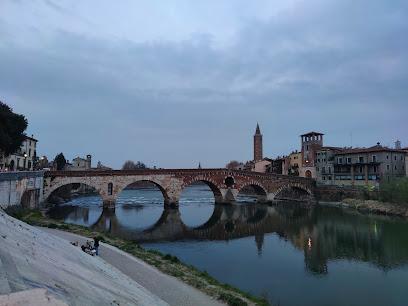
Te Palace
Explore Te Palace in Mantua, Italy—an architectural masterpiece filled with breathtaking frescoes and lush gardens, perfect for art and history enthusiasts.
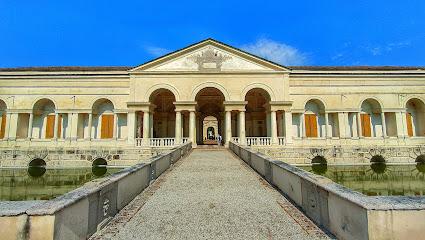
Archaeological site of Grotte di Catullo
Discover the enchanting Grotte di Catullo, a historical landmark showcasing the remnants of ancient Roman civilization amidst stunning views of Lake Garda.
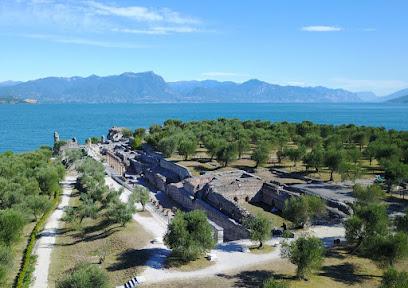
Castello Scaligero di Malcesine
Explore the enchanting Castello Scaligero di Malcesine, a medieval castle with breathtaking views of Lake Garda and rich historical significance.
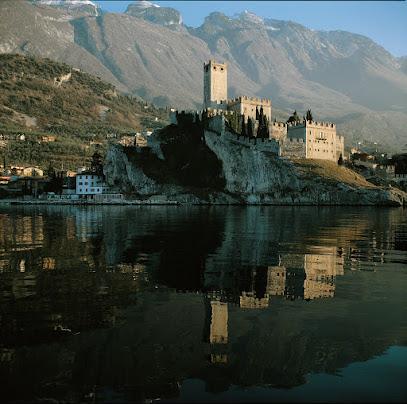
Essential places to dine
Osteria il Ciottolo
Discover the heart of Italian cuisine at Osteria il Ciottolo in Verona – where every dish tells a story.
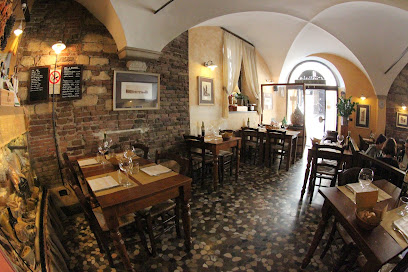
Greppia
Experience authentic Italian cuisine at Greppia in Verona—where every dish tells a story and every meal is a celebration.
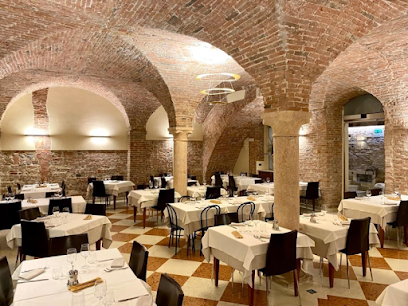
Ristorante Nastro Azzurro
Savor authentic Italian cuisine at Ristorante Nastro Azzurro in Verona, featuring fresh seafood and delectable pizzas for an unforgettable dining experience.
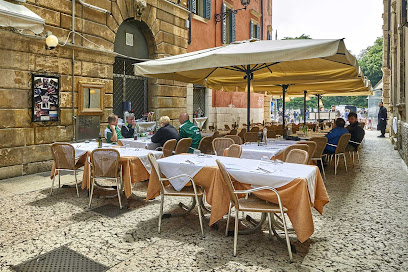
Antica Bottega del Vino
Discover authentic Italian cuisine and an exquisite wine selection at Antica Bottega del Vino in beautiful Verona.
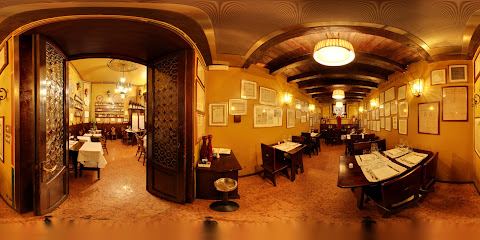
Osteria al Duca
Discover authentic Italian flavors at Osteria al Duca in Verona - where tradition meets culinary excellence.
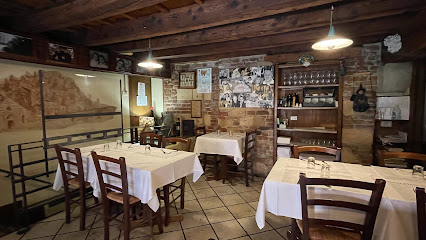
La Griglia
Discover authentic Italian cuisine at La Griglia in Verona - where every dish tells a story of tradition and flavor.
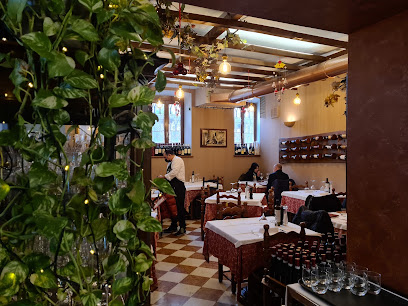
Il Punto Rosa
Experience authentic Northern Italian cuisine at Il Punto Rosa in Verona - a culinary treasure offering delightful meat dishes and exquisite wines.
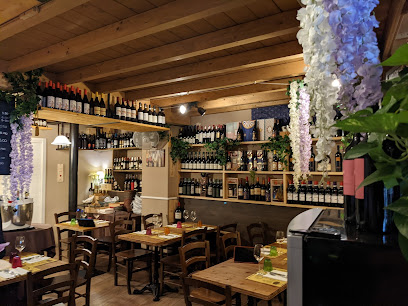
Torcolo
Discover authentic Italian flavors at Torcolo in Verona – where tradition meets modern dining excellence.
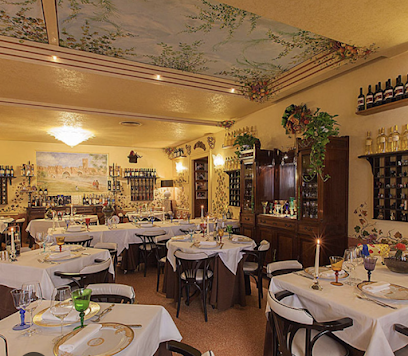
La Vecia Mescola
Discover authentic Italian cuisine at La Vecia Mescola in Verona - where tradition meets flavor in every dish.
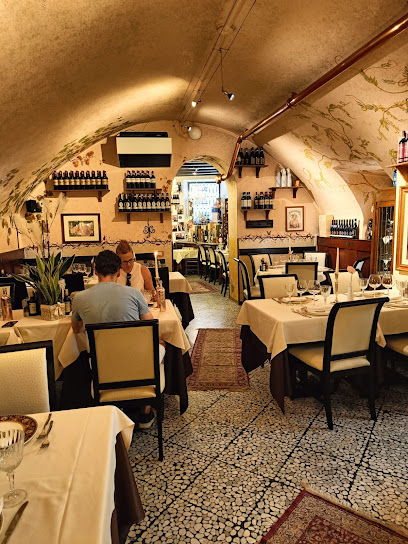
Osteria Il Bertoldo
Experience authentic Italian cuisine at Osteria Il Bertoldo in Verona - where tradition meets flavor in every dish.
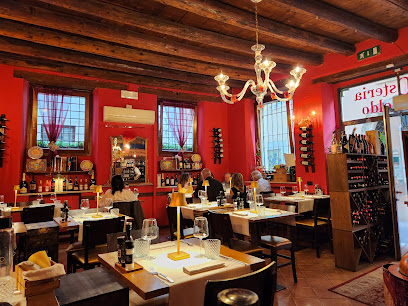
Locanda 4 Cuochi
Discover authentic Italian cuisine at Locanda 4 Cuochi in Verona, where traditional flavors meet modern culinary artistry.
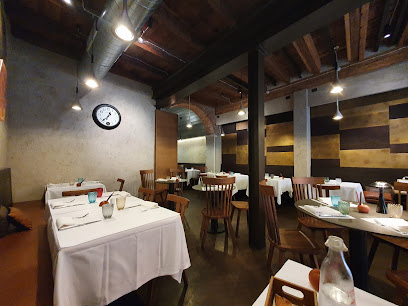
Trattoria al Pompiere
Experience authentic Italian flavors at Trattoria al Pompiere in Verona—where every dish tells a story.
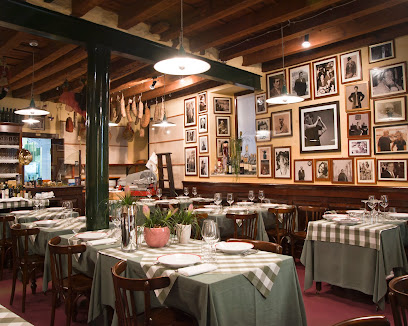
Santa Felicita Ristorante
Experience the essence of Italian cuisine at Santa Felicita Ristorante in Verona - where every meal tells a story.
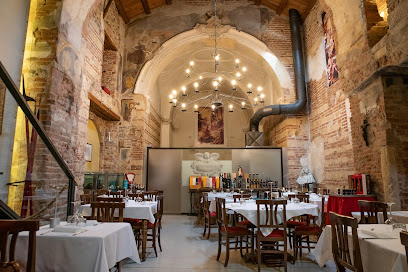
Ristorante Vegano Biologico La Lanterna
Discover exquisite organic vegan cuisine at Ristorante Vegano Biologico La Lanterna in Verona – where flavor meets sustainability.
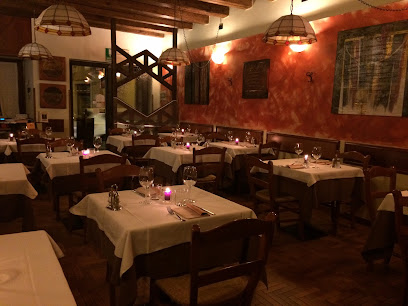
Ristorante Maffei
Experience authentic Italian cuisine at Ristorante Maffei in Verona's historic Piazza Erbe, where every meal tells a story.
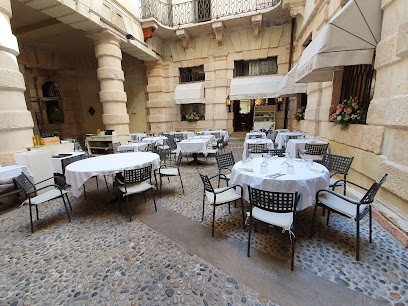
Markets, malls and hidden boutiques
ADIGEO
Discover ADIGEO, Verona's vibrant shopping mall, where fashion, beauty, and delicious dining meet in a lively atmosphere.
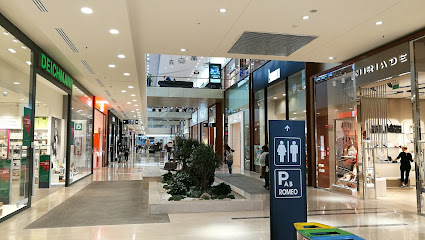
Flying Tiger Copenhagen
Explore the whimsical world of Flying Tiger Copenhagen in Verona, where unique gifts and playful home goods await every traveler.
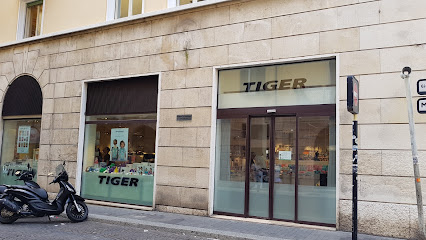
Louis Vuitton Verona
Discover unparalleled luxury shopping at Louis Vuitton Verona, featuring exquisite leather goods and fashion accessories in a historic setting.
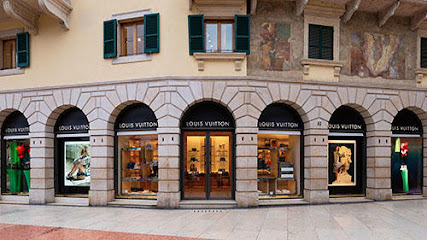
Al Buso Rock Store / Albus Store
Explore Al Buso Rock Store in Verona for unique T-shirts, musical instruments, and soccer memorabilia, blending fashion and culture in one vibrant location.
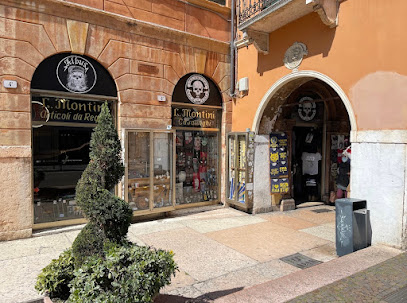
Gucci - Verona Mazzini
Explore high-end fashion at Gucci in Verona, offering a luxurious selection of clothing, accessories, and timeless pieces in a chic atmosphere.
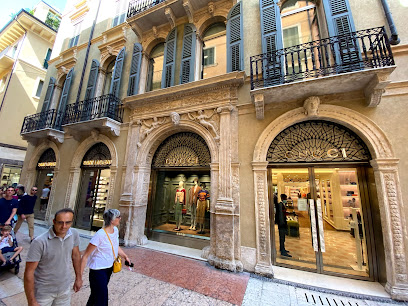
Romeo e Giulietta Shop
Explore the enchanting Romeo e Giulietta Shop in Verona for unique souvenirs that embody the romance of Shakespeare's timeless tale.
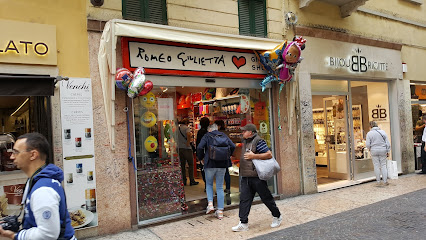
Humana Vintage Verona
Explore Humana Vintage Verona, a charming vintage clothing store offering unique fashion pieces and sustainable shopping in the heart of Italy.
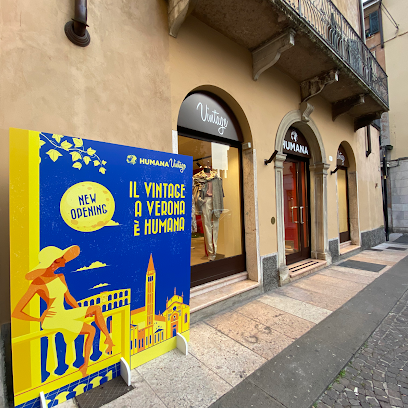
The Firm Shop
Discover stylish clothing and accessories at The Firm Shop in Verona, where contemporary fashion meets Italian elegance.
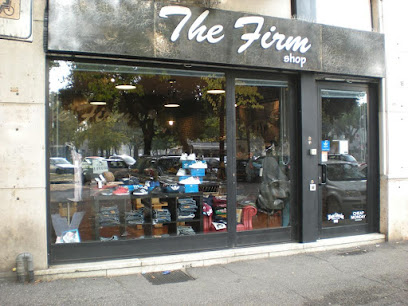
Mr. Gulliver Vintage Store Abbiglianento Accessori Scarpe
Explore Mr. Gulliver Vintage Store in Verona for unique clothing, leather goods, and stylish shoes that embody timeless fashion.
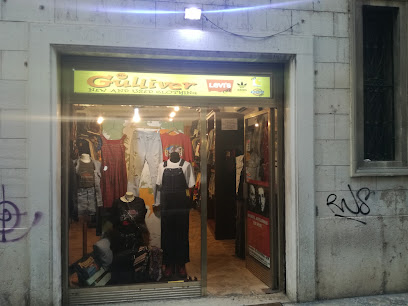
Folks
Explore Folks in Verona for trendy clothing that combines modern style with classic Italian elegance, perfect for every occasion.
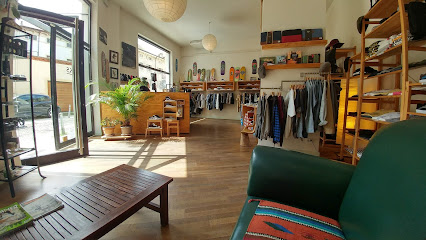
FILUFILU BAGS - Borse in pelle artigianali Verona
Explore FILUFILU BAGS in Verona for exquisite handcrafted leather handbags, showcasing Italian artistry and timeless elegance.
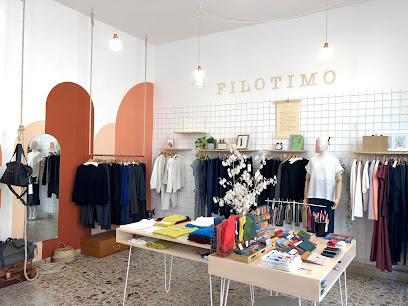
The Merchant of Venice - Verona store
Discover the luxurious fragrances of The Merchant of Venice, an exquisite perfume store in Verona offering unique scents inspired by Venetian heritage.
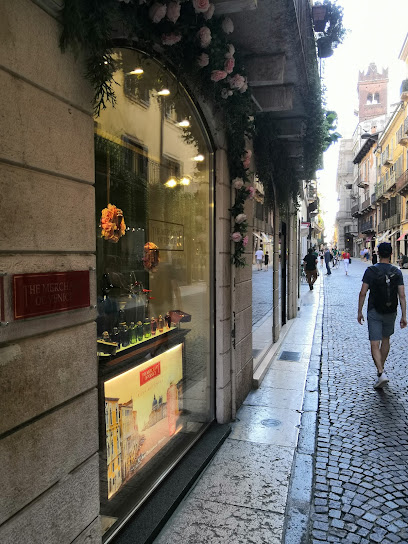
Piquadro Boutique Verona
Explore Piquadro Boutique Verona for exquisite leather goods and stylish bags, the epitome of Italian craftsmanship and elegance in the heart of Verona.
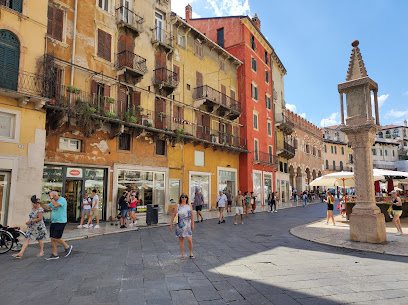
Lo Scrittoio Verona - Strumenti da Scrittura - Rivenditore autorizzato Dr. Vranjes
Explore the charm of Lo Scrittoio Verona, a novelty store offering fine writing instruments, exquisite leather goods, and enchanting perfumes in the heart of Verona.
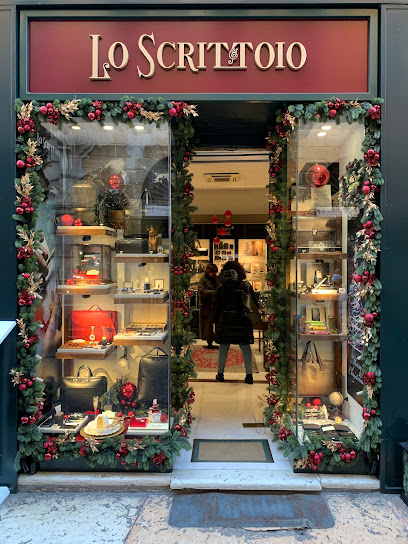
Canadiens Store
Discover the Canadiens Store in Verona: a unique blend of fashion and sports, offering exclusive apparel that embodies the city's vibrant spirit.
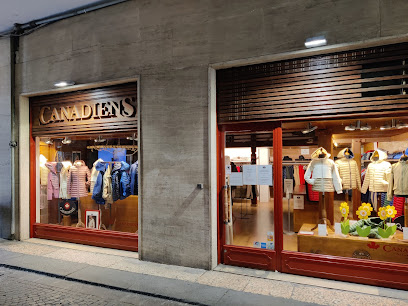
Essential bars & hidden hideouts
The Soda Jerk
Experience Verona's nightlife at The Soda Jerk, a hidden cocktail bar serving innovative drinks in a cozy atmosphere.
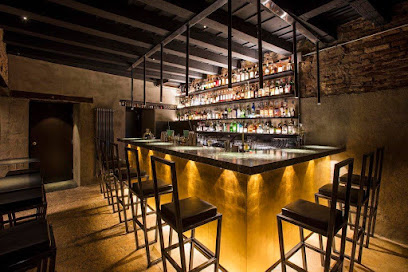
Archivio
Discover the vibrant nightlife of Verona at Archivio, a cocktail bar offering expertly crafted drinks and a lively atmosphere perfect for all travelers.
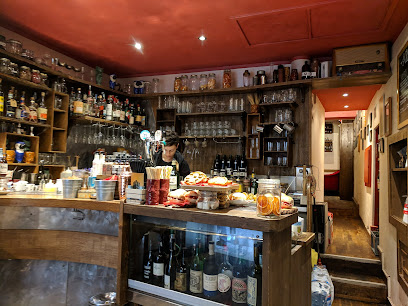
King Carlos da Barca
Discover King Carlos da Barca, a vibrant sports bar in Verona offering delicious food, drinks, and a lively atmosphere perfect for unwinding.
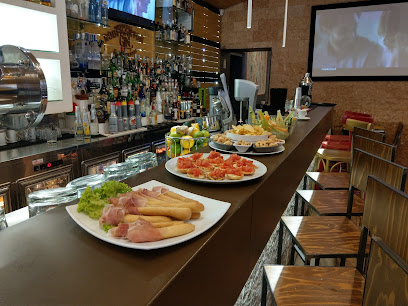
Santa Maria Craft Pub
Discover the perfect blend of craft beers and traditional Italian cuisine at Santa Maria Craft Pub in Verona, a haven for beer lovers.
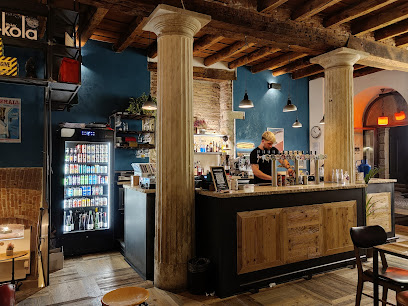
Romeo Bistrot & Cocktail Bar
Discover the perfect blend of crafted cocktails and gourmet small plates at Romeo Bistrot & Cocktail Bar in the heart of Verona.
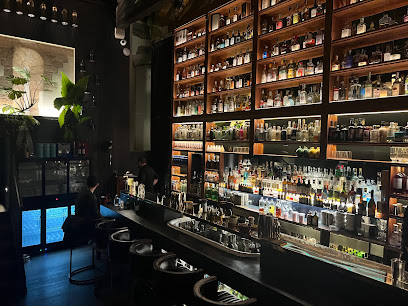
Bar da Piero
Experience the vibrant atmosphere of Bar da Piero in Verona, where craft beer and gourmet burgers unite for an unforgettable dining experience.
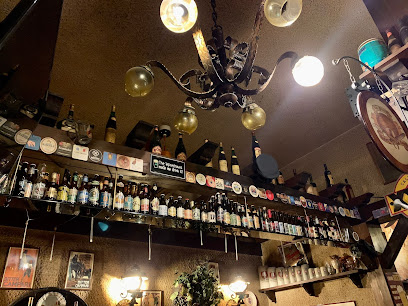
Campus
Experience the vibrant nightlife of Verona at Campus, a lively pub offering local drinks, great food, and a welcoming atmosphere.
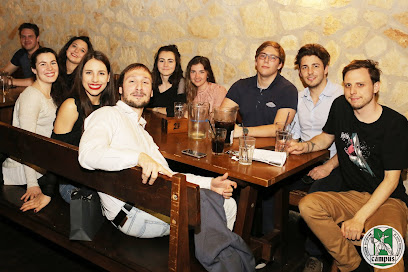
Osteria La Mandorla
Experience authentic Italian dining at Osteria La Mandorla, where exquisite wines and local flavors create unforgettable moments in Verona.
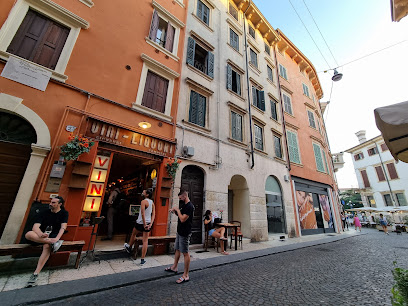
Atlantis Pub
Discover the vibrant atmosphere and delicious offerings at Atlantis Pub, Verona's favorite spot for craft beers and bistro delights.
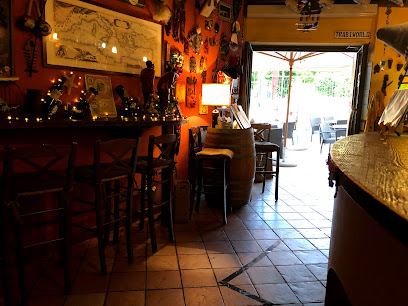
Hartigan's
Experience the vibrant atmosphere and local flavors at Hartigan's, the ideal pub for a delightful night out in Verona.
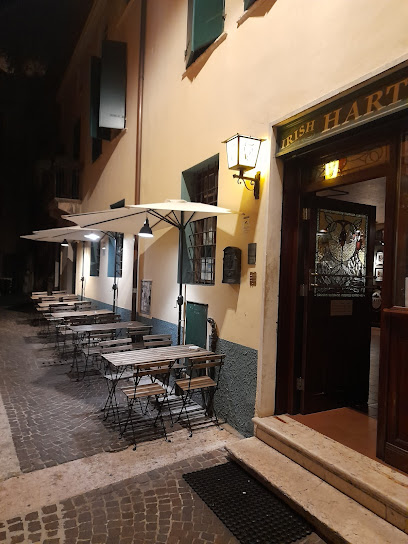
Demos
Discover Demos in Verona: A lively bar and brunch restaurant offering delicious cocktails and a cozy atmosphere, perfect for relaxation.
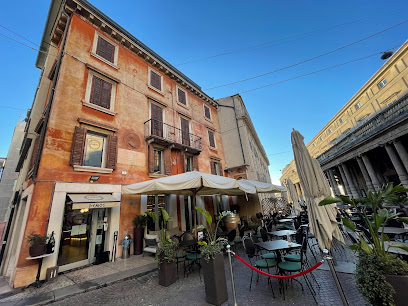
Scio' Rum
Experience a unique blend of cocktails and Asian fusion cuisine at Scio' Rum, Verona's premier cocktail bar and sushi restaurant.
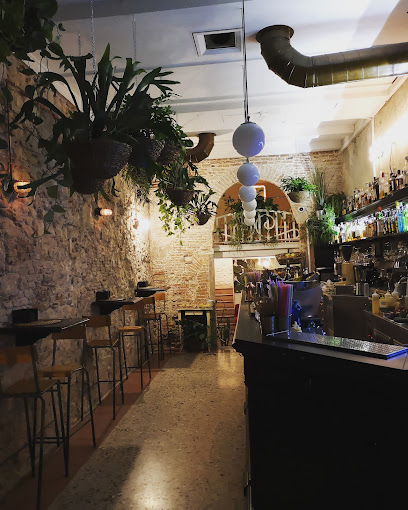
FRZ LAB
Experience Verona's vibrant nightlife at FRZ LAB, where innovative cocktails and a lively atmosphere await to delight your senses.
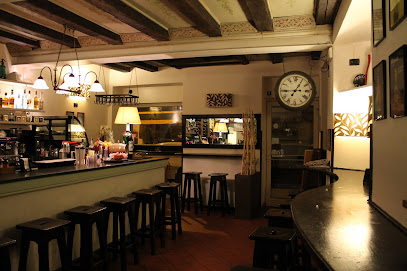
Grande Giove Cocktail bar
Discover Verona's nightlife at Grande Giove Cocktail Bar, where expert mixology meets vibrant ambiance in the heart of the city.
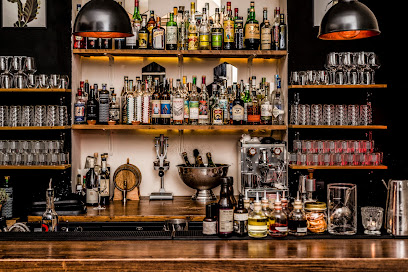
Local Phrases
-
- HelloCiao
[chow] - GoodbyeArrivederci
[ah-ree-veh-dehr-chee] - YesSì
[see] - NoNo
[noh] - Please/You're welcomePer favore/Prego
[pehr fah-voh-reh/preh-goh] - Thank youGrazie
[grah-tsyeh] - Excuse me/SorryScusa/Mi dispiace
[skoo-sah/mee dee-spyah-cheh] - How are you?Come stai?
[koh-meh stah-ee] - Fine. And you?Bene. E tu?
[beh-neh. eh too] - Do you speak English?Parli inglese?
[pahr-lee een-gleh-zeh] - I don't understandNon capisco
[nohn kah-pee-skoh]
- HelloCiao
-
- I'd like to see the menu, pleaseVorrei vedere il menù, per favore
[vohr-reh-ee veh-dehr-reh eel meh-noo, pehr fah-voh-reh] - I don't eat meatNon mangio carne
[nohn mahn-joh kahr-neh] - Cheers!Salute!
[sah-loo-teh] - I would like to pay, pleaseVorrei pagare, per favore
[vohr-reh-ee pah-gah-reh, pehr fah-voh-reh]
- I'd like to see the menu, pleaseVorrei vedere il menù, per favore
-
- Help!Aiuto!
[ah-yoo-toh] - Go away!Vattene!
[vah-tteh-neh] - Call the Police!Chiama la polizia!
[kee-ah-mah lah poh-lee-tsya] - Call a doctor!Chiama un dottore!
[kee-ah-mah oon doh-toh-reh] - I'm lostMi sono perso
[mee soh-noh pehr-soh] - I'm illSto male
[stoh mah-leh]
- Help!Aiuto!
-
- I'd like to buy...Vorrei comprare...
[vohr-reh-ee kohm-prah-reh] - I'm just lookingSto solo guardando
[stoh soh-loh gwar-dahn-doh] - How much is it?Quanto costa?
[kwahn-toh koh-stah] - That's too expensiveÈ troppo caro
[eh trohp-poh kah-roh] - Can you lower the price?Puoi abbassare il prezzo?
[pwah-ee ahb-bahs-sah-reh eel preh-tsoh]
- I'd like to buy...Vorrei comprare...
-
- What time is it?Che ore sono?
[keh oh-reh soh-noh] - It's one o'clockÈ l'una
[eh loo-nah] - Half past (10)E mezza (dieci)
[eh meh-tsa (dee-eh-chee)] - MorningMattina
[maht-tee-nah] - AfternoonPomeriggio
[poh-meh-ree-joh] - EveningSera
[seh-rah] - YesterdayIeri
[yeh-ree] - TodayOggi
[oh-jee] - TomorrowDomani
[doh-mah-nee] - 1Uno
[oo-noh] - 2Due
[dweh] - 3Tre
[treh] - 4Quattro
[kwah-ttroh] - 5Cinque
[cheen-kweh] - 6Sei
[seh-ee] - 7Sette
[seht-teh] - 8Otto
[oh-ttoh] - 9Nove
[noh-veh] - 10Dieci
[dee-eh-chee]
- What time is it?Che ore sono?
-
- Where's a/the...?Dov'è un/il...?
[doh-veh oon/eel] - What's the address?Qual è l'indirizzo?
[kwahl eh leen-dee-reet-tsaw] - Can you show me (on the map)?Puoi mostrarmi (sulla mappa)?
[pwah-ee mohs-trahr-mee (sool-lah mahp-pah)] - When's the next (bus)?Quando passa il prossimo (autobus)?
[kwahn-doh pahs-sah eel prohs-see-moh (ow-toh-boos)] - A ticket (to ....)Un biglietto (per ....)
[oon bee-lyeh-ttoh (pehr)]
- Where's a/the...?Dov'è un/il...?
History of Verona
-
Verona, originally known as Verona Minor, was founded in the 1st century BCE. It became a Roman colony in 89 BCE and was strategically located at the crossroads of important Roman roads. Its establishment allowed it to flourish as a critical hub for trade and military activities in the Roman Empire.
-
The Scaliger family, also known as the Della Scala family, rose to power in the 13th century. Under the rule of Cangrande I della Scala, Verona experienced a period of prosperity, expansion, and cultural development. The Scaliger family contributed to the construction of several monumental buildings, including the Castelvecchio and the Scaliger Tombs.
-
In 1405, Verona came under the rule of the Venetian Republic. This period marked a time of stability and economic growth for the city. The Venetians fortified Verona with impressive defensive walls and bastions, many of which still stand today. During this time, Verona continued to develop its architectural and artistic heritage.
-
After the fall of the Venetian Republic in 1797, Verona experienced a tumultuous period of French and Austrian rule. Napoleon's forces took control of the city, only to be replaced by the Austrians after the Congress of Vienna in 1815. The Austrian administration modernized Verona's infrastructure and contributed to its urban development.
-
Verona played a significant role in the Italian Risorgimento, the movement for the unification of Italy. In 1866, after the Third Italian War of Independence, Verona was annexed to the Kingdom of Italy. This marked the end of foreign domination and the beginning of a new era for the city within a unified Italy.
-
The 20th century brought significant changes to Verona, including the impact of both World Wars. During World War II, the city suffered bombings that damaged historical buildings. Post-war, Verona focused on reconstruction and modernization, while preserving its rich architectural heritage. Today, Verona is a vibrant city that harmoniously blends its historical legacy with contemporary life.
Verona Essentials
-
Verona is well-connected and easily accessible. The nearest international airport is Valerio Catullo Airport (VRN), located about 12 kilometers from the city center. You can reach Verona by train from major Italian cities like Milan, Venice, and Rome. The Verona Porta Nuova train station is the main hub. Buses also run frequently from neighboring cities and other parts of Italy. For those driving, Verona is accessible via the A4 and A22 motorways.
-
Verona's city center is compact and walkable, allowing you to explore most attractions on foot. For longer distances, the city has a reliable public bus system operated by ATV. Taxis are available but can be expensive. Consider renting a bicycle, as Verona has several bike lanes and rental shops. If you prefer driving, car rental services are available, but parking can be challenging in the city center.
-
The official currency in Verona, as in the rest of Italy, is the Euro (EUR). Credit cards are widely accepted in hotels, restaurants, and shops. However, it is advisable to carry some cash for small purchases and in case you visit places that do not accept cards. ATMs are readily available throughout the city for cash withdrawals.
-
Verona is generally a safe city for tourists. However, it is important to stay vigilant, especially in crowded areas such as Piazza Bra, Piazza delle Erbe, and around the train station. Pickpocketing can occur, so keep an eye on your belongings. Avoid walking alone at night in poorly lit areas. Neighborhoods like Veronetta, while culturally rich, have higher crime rates, so exercise more caution if visiting there.
-
In case of emergency, dial 112 for immediate assistance. Verona has several hospitals and clinics, with Borgo Trento Hospital being one of the main medical facilities. Pharmacies (farmacia) are scattered throughout the city and can provide over-the-counter medications. It is recommended to have travel insurance that covers medical emergencies and other unexpected situations.
-
Fashion: Do dress stylishly, as Italians take fashion seriously. Avoid overly casual attire when dining out. Religion: Do respect religious sites by dressing modestly and covering your shoulders and knees. Public Transport: Do validate your bus ticket upon boarding. Don't forget, as fines are imposed for unvalidated tickets. Greetings: Do greet people with a friendly 'Buongiorno' or 'Buonasera.' A handshake is common in formal settings. Eating & Drinking: Do try local dishes like risotto all'Amarone and polenta. Don't eat or drink while walking; it's considered impolite.
-
To experience Verona like a local, visit the less touristy neighborhoods such as Borgo Trento and San Zeno for authentic dining experiences. Attend a performance at the Roman Arena during the summer opera season. Enjoy a leisurely aperitivo in Piazza delle Erbe, where locals gather in the evenings. Consider visiting during the annual Verona Wine Fair (Vinitaly) to taste local wines.
Trending Landmark in Verona
-
Verona Arena
-
Juliet’s House
-
Castelvecchio Museum
-
Piazza delle Erbe
-
Ponte Scaligero
-
Ponte Pietra
-
Cattedrale di Santa Maria Matricolare
-
Castel San Pietro
-
Basilica di San Zeno Maggiore
-
Porta Borsari
-
Porta Nuova
-
Piazza dei Signori
-
Basilica di Santa Anastasia
-
Giusti Garden
-
Museo Archeologico al Teatro Romano
Nearby Cities to Verona
-
Things To Do in Parma
-
Things To Do in Modena
-
Things To Do in Venice
-
Things To Do in Bergamo
-
Things To Do in Bologna
-
Things To Do in Milan
-
Things To Do in St. Moritz
-
Things To Do in Ravenna
-
Things To Do in Lugano
-
Things To Do in Davos
-
Things To Do in Cinque Terre
-
Things To Do in Arosa
-
Things To Do in Lucca
-
Things To Do in Florence
-
Things To Do in Locarno

















